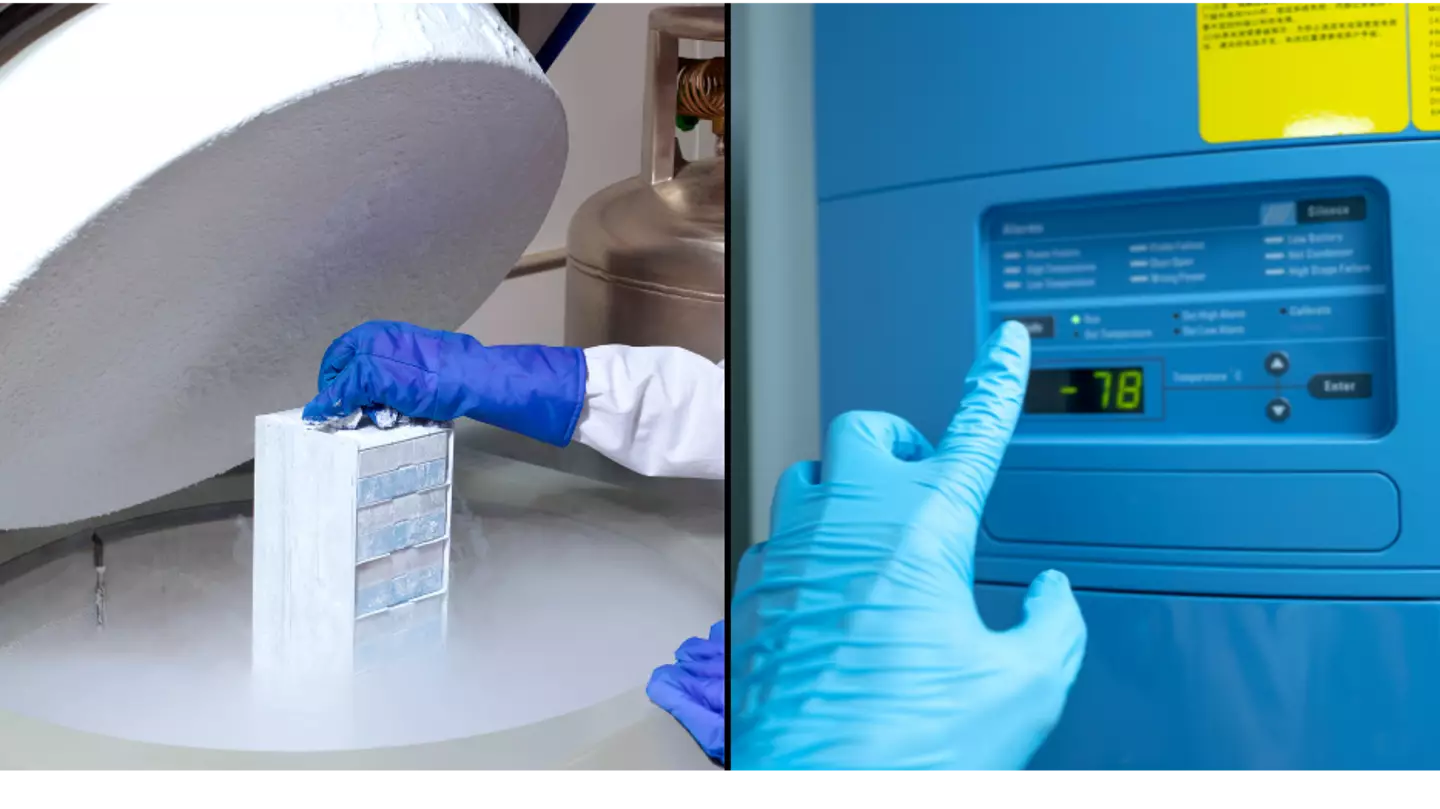
Frozen humans could be brought back to life in 50 to 70 years according to an expert.
The incredible breakthrough came about after an extinct worm was successfully reawakened after a staggering 46,000 years.
The worms were found quite literally frozen in time inside of Siberian permafrost back in 2018 and, in a groundbreaking study published just last month, experts managed to resurrect the creatures that had been trapped there since the era of the woolly mammoths.

Advert
The creepy-crawlies in question have since raised an interesting prospect: could we one day have a real-life 'Encino Man' on our hands?
In case you're not familiar with the 1992 blockbuster, Encino Man follows two high school students who miraculously discover a frozen caveman in their backyard.
After thawing him out, the pair successfully introduced him to modern life.
While they may not be as exciting as a prehistoric man, the roundworms are pretty cool step in the scientific advancement.
They were able to be resurrected as they can shut their bodies down in unsuitable environments - a process referred to as anabiosis.
Advert
Valeriya Udalova, CEO of KrioRus, which claims to house 94 frozen corpses at its cryopreservation base in the Russian capital, said: "I don’t think that human metabolism can be radically restructured so that we also go into anabiosis like animals. It’s probably easier to create new, artificial bodies."
Now that would be something.

She told MailOnline that, for humans to be resurrected, there would have to be some major progress in the field of medicine and tissue engineering making the bold claims that such technology could arise within the next 50 to 70 years.
"Cryobiological laboratories are few, there are no large ones at all," she explained. "Even the famous laboratory 'XXI Century Medicine' is a small organization."
Advert
She continued: "But even in such a deplorable situation, remarkable experiments have already been made, for example, on reversible cryopreservation of a rat kidney using gas persufflation with nanoparticles and induction heating."
The cryonic tech we currently have on offer now is said to be insufficient as cryoprotectant agents have 'toxic' effects on the brain and body parts.
Portuguese microbiologist, Dr. João Pedro de Magalhães told Gizmodo back in 2018: "It will take huge scientific advances in areas like tissue engineering and regenerative medicine to make cryopreserved individuals alive and healthy again.
"Patients with terminal diseases, including children, could opt to be placed on cryostasis until a cure were discovered," he explained.
De Magalhães added: "In a sense, we would have an alternative to death, which has profound philosophical, ethical and medical implications."
Advert
What do you make of it?
Topics: Science, Weird, Health, Technology, World News, News